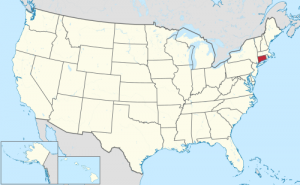Connecticut Medical Marijuana Program
 On June 1st, 2012, “The Nutmeg State” legalized the use of medical marijuana when the state’s legislature and Governor signed off on making the drug legal to users in need.
On June 1st, 2012, “The Nutmeg State” legalized the use of medical marijuana when the state’s legislature and Governor signed off on making the drug legal to users in need.
Patients who are certified to use medical cannabis or their caregivers can possess up to a one month supply. Additionally, users can get their medicine from pharmacy dispensaries that are authorized by the state.
Qualifying Conditions
Under Connecticut’s medical marijuana law, patients may be recommended marijuana for the following conditions:
- Amyotrophic lateral sclerosis (ALS)
- Cachexia
- Cancer
- Cerebral Palsy
- Chronic neuropathic pain associated with degenerative spinal disorders
- Complex regional pain syndrome
- Crohn’s disease
- Cystic Fibrosis
- Epilepsy
- Glaucoma
- Hydrocephalus
- HIV or AIDS
- Interstitial cystitis
- Intractable headache syndromes
- Intractable neuropathic pain that is unresponsive to standard medical treatments
- Intractable spasticity
- Irreversible Spinal Cord Injury with Objective Neurological Indication of Intractable Spasticity
- Medial arcuate ligament syndrome, or MALS syndrome
- Multiple Sclerosis
- Muscular dystrophy
- Neuropathic facial pain
- Osteogenesis imperfecta
- Parkinson’s Disease
- Post herpetic neuralgia
- Post-surgical back pain with a condition called chronic radiculopathy
- Post laminectomy syndrome
- Posttraumatic Stress Disorder (PTSD)
- Severe psoriasis and psoriatic arthritis
- Severe rheumatoid arthritis
- Sickle cell disease
- Spasticity
- Terminal Illness Requiring End-Of-Life Care
- Tourette syndrome
- Ulcerative colitis
- Uncontrolled Intractable Seizure Disorder
- Vulvodynia and vulvar burning
- Other medical conditions may be approved by the Department of Consumer Protection
Qualifying conditions for patients under 18 include:
- Cerebral Palsy
- Cystic Fibrosis
- Irreversible Spinal Cord Injury with Objective Neurological Indication of Intractable Spasticity
- Severe Epilepsy
- Terminal Illness Requiring End-Of-Life Care
- Uncontrolled Intractable Seizure Disorder
- Muscular Dystrophy
- Osteogenesis Imperfecta
How to Apply For a Medical Marijuana Card in Connecticut
To apply for a medical marijuana card in Connecticut, you must meet the following criteria:
- You must be a resident of Connecticut.
- You must receive a written recommendation from a qualified physician as having a condition that may benefit from the use of medical marijuana.
- You must be 18 years or older.
- Note that inmates in a CT correctional institution will not qualify, regardless of their medical condition.
Beginning in October of 21012, qualifying patients can apply for temporary registration certificates from the Department of Consumer Protection. There is a $25 maximum registration fee.
Renewal Requirements
- Provide proof that you still live in Connecticut.
- Complete the six certifications at the end.
- Pay a one hundred ($100.00) dollars registration fee.
- Update any information that has changed from the previous year (e.g. change of address)
Renewals for caregivers require you to submit a photo ID, complete the five certifications at the end of the form, and pay a $25 registration fee.